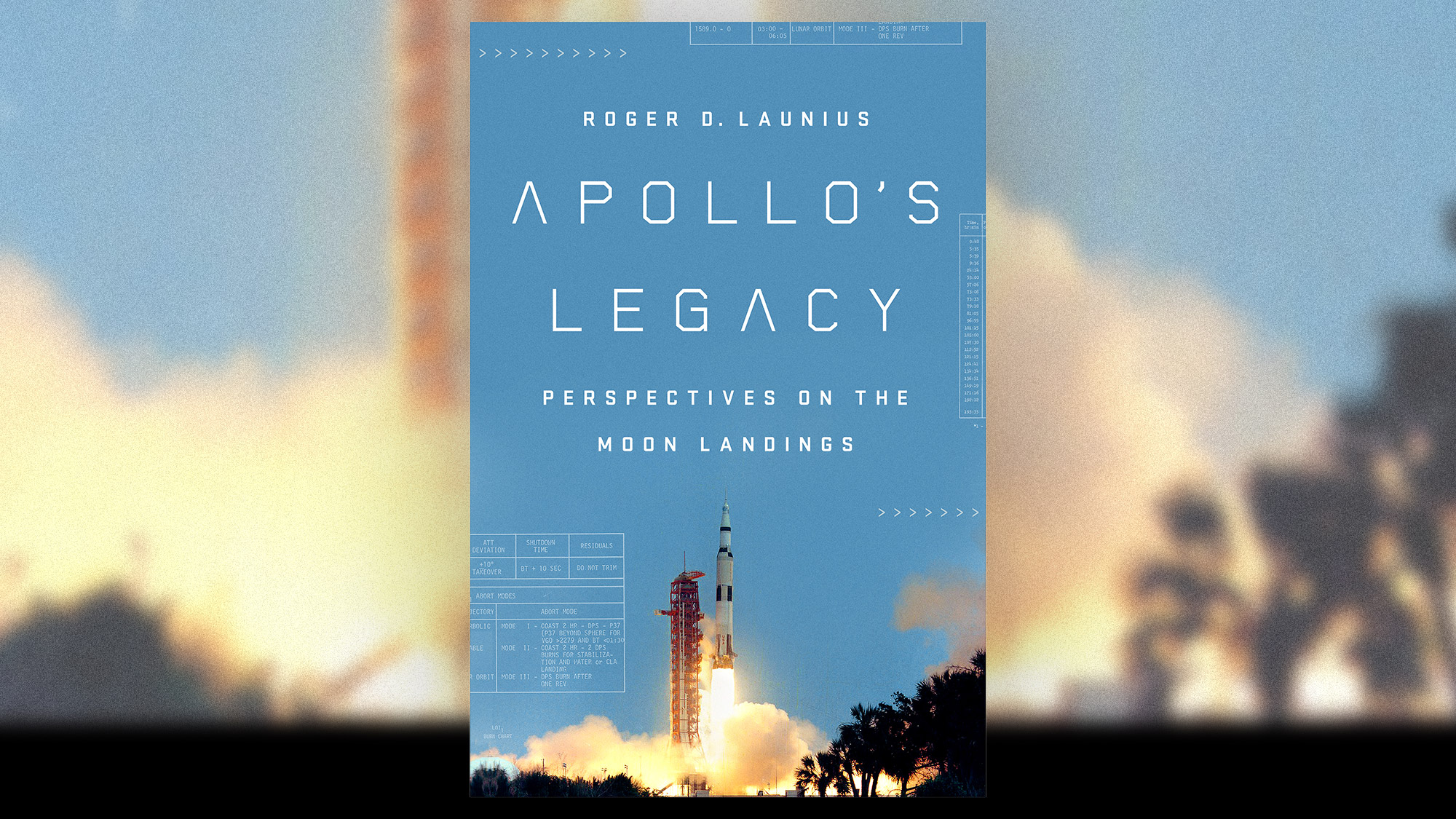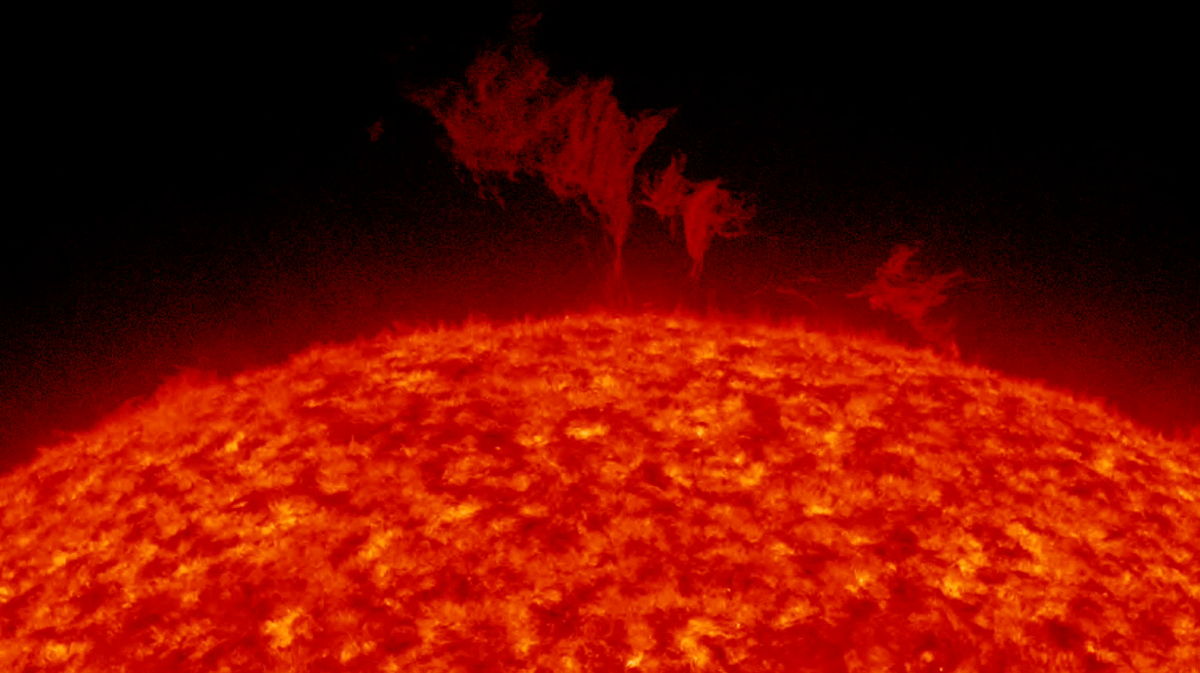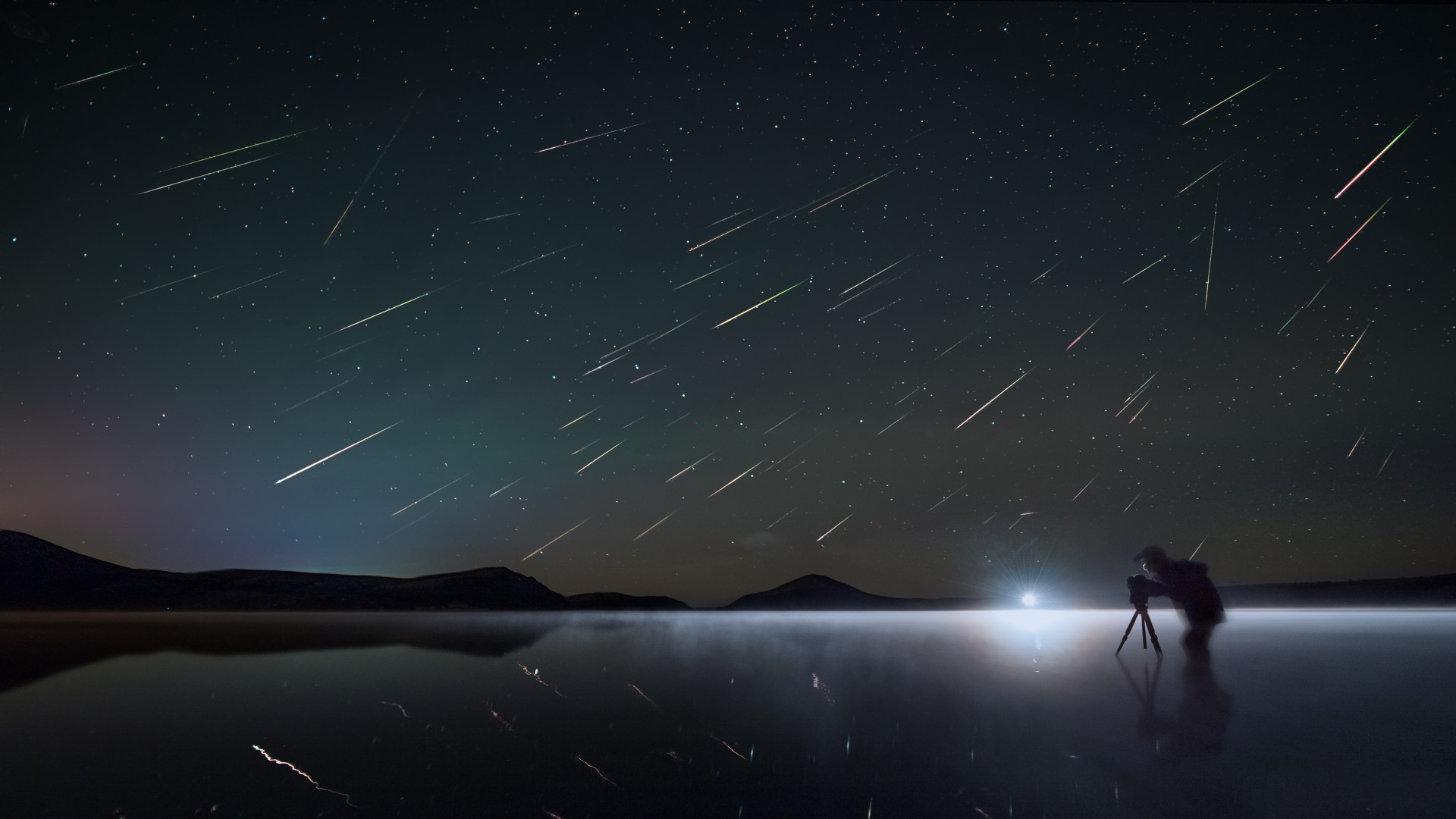'Apollo's Legacy': Space Historian Talks Lunar Science, Politics — and a Return to the Moon
What does the event's history teach us?

NASA's Apollo program was transformational technologically, scientifically and politically, and it reverberates today in how the country sees itself and its accomplishments.
The slim volume "Apollo's Legacy" (Smithsonian Books, 2019) by space historian Roger Launius, out today, is written for scholars, but it's accessible to anybody interested in looking at this foundational moment in U.S. history from a multitude of perspectives.
Space.com caught up with Launius to discuss the book, the state of space exploration 50 years after the historic missions and what Apollo can teach us about the modern-day space program and our return to the moon.
Related: Best Spaceflight and Space History Books

Space.com: Did you know immediately what viewpoints you wanted to use to tackle Apollo, or did it take some narrowing down?
Roger Launius: Yeah, it took some time. You sort of work through these various things. I wanted to say something about the science that resulted. I wanted to say something about the technology that was developed. I wanted to say something about the political situation that drove this. I also wanted to talk about how people reacted to it both at the time and since.
I make the point in the book that there are four approaches people take, or narratives, if you want to call them that, or interpretations of that time. The first, and the dominant one, is the celebration of America as a great success story and Apollo as [a part of that] — it plays beautifully into that idea of what we want to think about ourselves.
Get the Space.com Newsletter
Breaking space news, the latest updates on rocket launches, skywatching events and more!
We want to believe that we can rise to the occasion, and Apollo's a great object lesson for that. ... All the stories that people write about this, this summer [for Apollo 11's 50th anniversary], they're going to emphasize that. And that's good. At some level, all of that's true.
But there's counterthemes as well. One of them is that the political right was opposed to it because it was a waste of money for things that they believed would be more appropriate, like military spending, and maybe space military spending. Both then and since, we've seen these kinds of criticisms. There's criticism from the political left that it was a waste of money that could have gone to feed the poor, shelter the homeless, you name the challenge of your choice. And you've seen it criticized both then and since in that particular way. And there's the group — it's a small group, but nonetheless it's a real group — of people who believe we never went there at all. And that's another narrative that's a part of this.
Space.com: What were the most difficult things to consolidate down to a single chapter?
Launius: I really worked hard to try to come to grips with things like the science. They did interesting scientific experiments in every mission … We didn't go to the moon because of science, but science rode piggyback on this big technological program and accomplished quite a bit. And we're still using data that's coming from things like the passive reflectors on the moon to measure distance. We're still measuring seismic activity and things of this nature. And we've fundamentally found the origins of the moon, and that took years to happen.
Scientists at the time didn't think there was ever a way to come to grips with [the moon's origins]. People had been arguing about it for years amongst themselves … and then in 1984, they had a conference in Hawaii in which scientists were asked to come and present what they could about what they think happened with the origins of the moon. And each of them approached it from their own specialties, from their own bit of data that they had. And when they pieced it all together in the course of this three-day meeting, they had all pretty much agreed that the best explanation was that a large body passing through the solar system, probably about the size of Mars, banged into Earth in the primordial era, and parts of it and parts of the Earth took off out into space and coalesced into what became the moon. And nobody knows what happened to the other body that passed through, [named] Theia. That was pretty astounding, because it really did show how science works … it's an example in my mind of the best of scientific exploration.
Space.com: What might knowledgeable readers be most surprised by?
Launius: There's a number of things. One of the things that comes through loud and clear in the book is that there were all of these people that didn't like this program, both at the time and afterwards, and they criticized it for reasons that they thought made sense. But it's often that success has a thousand fathers, and so when most people look back on this, they think of it as this great and exciting experience. And they don't necessarily know or understand that it was subject to the same sort of political processes that we see today with everything and that there were people on both sides of the aisle that disliked it for different reasons.
I think it's an interesting question to ask and ponder which we can never really know the answer to: What might have happened had the [President John F.] Kennedy assassination not taken place? We do know that he was moving toward, in 1963, and he publicly stated in a speech to the U.N., that he would like to turn the Apollo program into a joint effort with the Soviet Union. Would that have happened? … Had he continued on into 1964, would he have made changes to the program? It's possible. That would have remarkably changed everything. We can never know for sure, but it's a fascinating thing and most people aren't aware of any of it.
Related: Building Apollo (Photos)
Space.com: How can understanding all this about Apollo inform how we think about current space-agency goals?
Launius: I would urge anybody who is willing to accept an argument about returning to the moon, as we heard Vice President [Mike] Pence say a month ago — and to do it within five years — I would urge everybody to pay attention to the Apollo program and what happened there. It's not to say it can't be done — it can. But there is going to have to be an investment of time and resources and money. And if these things are not forthcoming, neither will new moon landings.
Space.com: Because NASA had 4.5% of the federal budget at the time, right? The current NASA budget is less than one-half of 1%.
Launius: If you're going to return to the moon, you probably do not need to give 4.5% of the federal budget to NASA, but you're going to have to increase it some. … The reality is that there has to be an investment in this, and if that's not forthcoming, we're not going to do it. We've been down this road a couple of times previously: 1989, the first President [George] Bush announced on the steps of the National Air and Space Museum that we were going to go back to the moon and on to Mars. And it became [the] Space Exploration Initiative, which went nowhere. In 2004, the second President [George] Bush announced, in the NASA headquarters, that we were going to retire the space shuttle, we were going to build a new vehicle and we were going to return to the moon, and maybe onto Mars.
And how well did those turn out? Is [Pence's declaration] another example of that, or is it an example of something like what Kennedy did? And it wasn't as much Kennedy as it was other political leaders who really got behind it and made the money flow.
Space.com: It would be hard to predict what would happen by focusing just on the central person driving this forward. You have to look at the whole environment around them.
Launius: You do, and I can't tell you how many times I've heard from people in the space community [that] "if we just had a president with the foresight and the imagination and the leadership ability of John Kennedy, all would be well." And it's just not that simple.
Space.com: Do you think we are going to make it back to the moon?
Launius: Well, I have no idea. It's really dependent on [the fact that] the president has to propose a budget and the Congress has to agree to a budget that's going to make that possible.
We have to decide that this is something that we want to do. As a nation, we've never been willing to expend resources since Apollo on comparable levels of activity. We've had many opportunities to do it, and we've always decided not to. And NASA's been able to do some things, and they've done them quite well, on a much smaller budget. But if we're talking about a major human program to go to the moon or to go to Mars, it's going to take a significant investment … and over a certain period of time.
You know, it's interesting, because Kennedy gave a speech to the joint session of Congress in May of 1961. He had a written paragraph in which he says this is going to cost a lot of money and it's going to take a lot of time. And he says, "It's your decision, members of Congress, as to whether or not we do this. I think we should, but if you disagree, let's not even start, because we don't want to stop halfway down the road." And that was a part of his written text. At the end of his speech, he ad libs another paragraph, where he says essentially the same thing one more time.
And I have yet to hear anybody in authority, when these other proposals have been made, say, "Look, this is going to cost us. And here's why we need to do it and why I want to do it, and I hope you go along with me." I didn't hear that from Vice President Pence the other day, either.
Related: Presidential Visions for Space Exploration: From Ike to Trump
Space.com: Do you think that private industry could make it to the moon?
Launius: Who's going to put up that kind of cash, and why are they going to put up that kind of cash? They'll do anything you ask of them if NASA's going to pay the bill for it, but if not — and that comes back to another thing that happened with Apollo. We went to the moon, but we didn't find anything there we really wanted. And if we had, we would have continued to go back over and over again. And by the way, it doesn't mean it's not there — we just didn't find anything.
Space.com: With tech getting cheaper, couldn't it eventually enter the realm of cost possibility?
Launius: If it does get cheaper, but has it gotten cheaper? I don't see it.
Every time we build a new rocket — it doesn't matter if the rocket is something that's funded by the government or funded by a company — what we do is basically shave a few points off the cost. We put a little more efficiency into it. It does its job a little bit better, but it's all incremental. There's not been a radical change in any of it. And I would contend that that's our No. 1 issue.
I think the rocket-launch industry is about where the airplane industry was in about 1940. We had been flying airplanes since 1903. They had gotten more complex, more safe, faster, could fly higher, could do all of this stuff, had more capabilities. But every design was just, incrementally, a little bit better than the one before. Its engine was a little better, the airframe and aerodynamics was a little better, on and on and on. And I think that's what we do with our rockets. It took a radical new technology to change the nature of atmospheric flight, and that was the jet. Are we in a similar situation with liquid-oxygen, liquid-hydrogen rockets? I'm sort of wondering if that's not the case.
This article was edited for length. You can buy "Apollo's Legacy" on Amazon.com.
- The Journey to Spaceflight: A Q&A with Author Roger D. Launius
- Can NASA Really Put Boots on the Moon in 2024?
- 10 Coolest Moon Discoveries
Email Sarah Lewin at slewin@space.com or follow her @SarahExplains. Follow us on Twitter @Spacedotcom and on Facebook.
Join our Space Forums to keep talking space on the latest missions, night sky and more! And if you have a news tip, correction or comment, let us know at: community@space.com.

Sarah Lewin started writing for Space.com in June of 2015 as a Staff Writer and became Associate Editor in 2019 . Her work has been featured by Scientific American, IEEE Spectrum, Quanta Magazine, Wired, The Scientist, Science Friday and WGBH's Inside NOVA. Sarah has an MA from NYU's Science, Health and Environmental Reporting Program and an AB in mathematics from Brown University. When not writing, reading or thinking about space, Sarah enjoys musical theatre and mathematical papercraft. She is currently Assistant News Editor at Scientific American. You can follow her on Twitter @SarahExplains.









